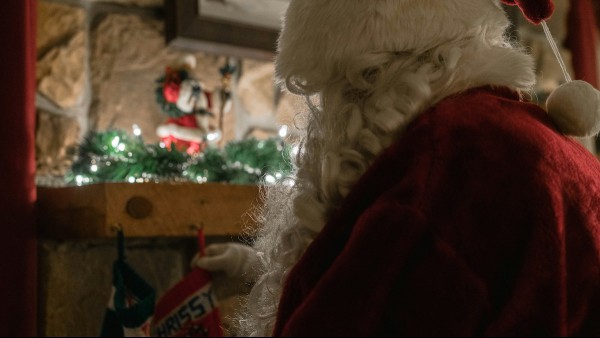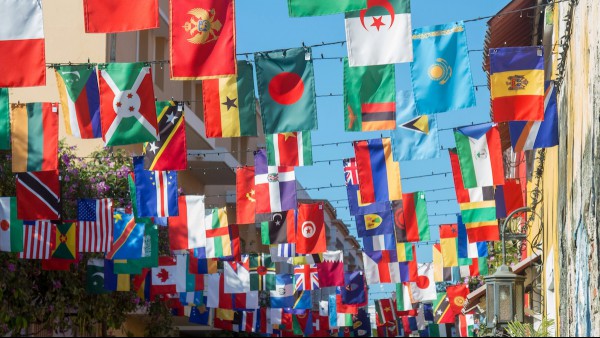Are These 6 ‘German’ Things Really German?
The English language has given a lot of names to things that reference a specific culture: Swiss cheese, Mexican hot chocolate, French kissing and many more. At first glance, you might assume that these names refer to origins. And while that is often the intention, there are a whole slew of misnomers. With that in mind, we decided to look at six things that are called German or Bavarian to see if they really come from Germany, or if their name is a little misleading.
Are These ‘German’ Things Actually German?
German Shepherd
Dog breeds often have a country name in them, like the French bulldog or the Irish wolfhound. While sometimes these names are a little misleading, the German shepherd is verifiably German. The first official German shepherd was a hound purchased at a dog show in 1899 by Max von Stephanitz. He dubbed the dog Deutscher Schäferhund (literally “German shepherd dog”) and promoted it as the ideal of a “working dog.” All German shepherds are believed to be descended from von Stephanitz’s pets.
Verdict: German
German Chocolate Cake
A German chocolate cake, for the uninitiated, is a chocolate cake with pecan-coconut frosting. Shockingly, the German chocolate cake was created by an American baker. Its original name was German’s chocolate cake, and it was named after its maker, Samuel German. He made the cake for Baker’s Chocolate Company in the middle of the 19th century, and it has been a baking mainstay for almost two centuries since.
Verdict: Not German
Black Forest Cake
If you are looking for a cake that is actually associated with Germany, you might want a Schwarzwälder Kirschtorte, also known as the Black Forest cake. The cake’s name is a reference to the Black Forest mountain range in Germany, and it’s made up of chocolate cake, whipped cream and maraschino cherries. While it’s definitely German, its name is also a bit misleading because it was not named for the mountain range. Leading theories claim it’s probably named after a specific liquor from the region that is made of cherries, or after a traditional outfit worn by women of the Black Forest region that vaguely resembles the cake. The Black Forest region does have cherry trees, though, making for a clear connection to the cake.
Verdict: German
German Nutcracker
It may be contentious to say, but Germany practically invented Christmas. Not the religious aspect of the holiday, but the traditions around it. The advent calendar, gingerbread and even the Christmas tree itself have all been traced back to Germany. What about the nutcracker? Germany can take credit for that too, with the earliest nutcrackers coming from the country at the start of the 19th century, and the earliest dictionary reference to the Nussknacker appears in the Brothers Grimm’s dictionary. Later, it was turned into a commercial product by the “father of the nutcracker,” a German man named Wilhelm Fuchtner.
Verdict: German
Bavarian Cream
Bavaria is a state in the southwest of Germany, and the idyllic stereotype of Bavaria is often conflated with the country as a whole. As far as Bavarian things go — Oktoberfest, Dirndls, Lederhosen — Bavarian cream isn’t necessarily the most iconic, but it’s got the name attached. It’s not exactly clear where the custard with whipped cream and gelatin comes from. There is a possibility it’s genuinely Bavarian, but it may also have originated from nearby France instead. Most commonly, its invention is credited to 19th-century French chef Marie-Antoine Carême.
Verdict: Questionably Bavarian
Bavarian Pretzel
Compared to the other items on this list, pretzels are very, very old. It was being used as a symbol for German bakers’ guilds as far back as the 12th century CE. For almost a millennium, then, pretzels have been a staple of German cuisine. Whether the original pretzel comes from Germany or not, however, isn’t known. It’s believed the earliest pretzels were made by Catholic monks, who may have been Italian or French. This theory is backed up by the possibility the word “pretzel” comes from the German Brezel, which itself is taken from the Latin brachitella meaning “little arms” (or maybe bracellus meaning “bracelet”). It may not be the ultimate origin, then, but Germany is certainly the cultural center of the pretzel.
Verdict: Pretty German
RECOMMENDED NEWS

When Did Americans Lose Their British Accents?
In July 1776, the United States declared its independence from the United Kingdom, initiating a war ...
The Language Of The Most Iconic Women’s Rights Posters
March 8 marks International Women’s Day, a holiday that invites us all to think about the progress t...

AI for Sustainability: 10 Key Areas of Impact
As the world confronts urgent challenges like climate change and environmental degradation, the need...

Names For Santa Claus Around The World
Santa Claus, the iconic figure of generosity and joy, is known and loved by children and adults arou...

When In Rome, Talk Like The Romans Do: Roman Expressions And Sayings
Have you ever had a conversation with a Roman only to realize halfway through that you can’t underst...

Language And Nationality: Exploring The Complex Relationship
Language and nationality are deeply intertwined aspects of human identity that shape how we perceive...
Comments on "Are These 6 ‘German’ Things Really German?" :